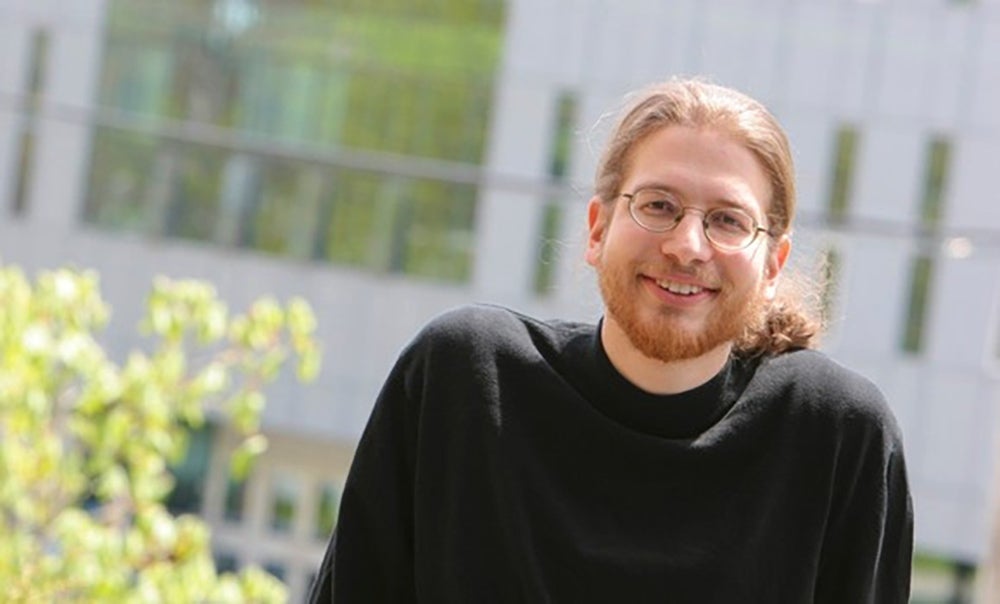Erik Demaine (CS PhD 2001) and a team of researchers, including his father, have published a proof on a geometric problem involving infinite folds — that any finite polyhedral manifold in three dimensions can be continuously flattened into two dimensions while preserving intrinsic distances and avoiding crossings.

Cutting or tearing the shape isn’t allowed. Also, the shape’s intrinsic distances must be preserved.
“This is just a fancy way to say, ‘You’re not allowed to stretch [or shrink] the material,’” Professor Demaine said. This type of folding must also avoid crossings, meaning “we don’t want the paper to pass through itself” because that doesn’t happen in the real world, he notes. Meeting this constraint is “especially challenging when everything’s moving continuously in 3D.” Taken together, these constraints mean that simply squashing the shape won’t work.
Currently a professor of computer science at the Massachusetts Institute of Technology, Erik Demaine has a storied academic career at Waterloo. He was admitted at the Cheriton School of Computer Science at the age of 14 and was among the youngest of any students at Waterloo to enrol for graduate studies.
Professor Demaine began teaching at MIT at the age of 20, reportedly the youngest professor in the institution’s history. He has made many outstanding contributions across several fields, including computational geometry, data structures, graph algorithms and recreational algorithms.
In this recent work, Professor Demaine continued research he started under the tutelage of his supervisors, Cheriton School of Computer Science Professors Anna Lubiw and Ian Munro.
As part of his scholarship, Professor Demaine also produces mathematical art, including intricate origami sculptures that are part of the permanent collection at the Museum of Modern Art in New York.
To learn more about the new proof, please see Father-Son Team Solves Geometry Problem With Infinite Folds, a feature article by Rachel Crowell published in Quanta Magazine on April 4, 2022.
For the paper on which the Quanta feature is based, please see Zachary Abel, Erik D. Demaine, Martin L. Demaine, Jason S. Ku, Jayson Lynch, Jin-ichi Itoh, Chie Nara. Continuous Flattening of All Polyhedral Manifolds using Countably Infinite Creases. Computational Geometry, vol. 98, October 2021.